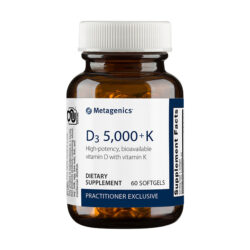
In recent years, the spotlight on vitamins and their crucial role in maintaining optimal health has grown brighter. Among these essential nutrients, vitamin D and vitamin K have emerged as a powerful combination with the potential to positively impact various aspects of well-being. This article explores the significance of high-potency, bioactive vitamin D paired with vitamin K, shedding light on their individual benefits and the synergistic effects they offer.
Understanding Vitamin D:
Vitamin D, often referred to as the “sunshine vitamin,” plays a pivotal role in maintaining overall health. While it is naturally synthesized in the skin upon exposure to sunlight, many individuals still face deficiencies. High-potency vitamin D supplements aim to bridge this gap, providing an easily accessible and effective means of obtaining this crucial nutrient.
The primary function of vitamin D is the regulation of calcium and phosphorus absorption, contributing significantly to bone health. However, its influence extends far beyond the skeletal system. Emerging research suggests that vitamin D is involved in immune function, cardiovascular health, and even mood regulation.
Unveiling Vitamin K:
Vitamin K, discovered for its essential role in blood clotting, is a fat-soluble vitamin that comes in two main forms: K1 (phylloquinone) and K2 (menaquinone). While K1 is primarily found in green leafy vegetables, K2 is present in fermented foods and animal products. The symbiotic relationship between vitamin K and vitamin D has become an area of interest for researchers exploring their combined impact on health.
The Synergy of Vitamin D and Vitamin K:
- Bone Health Enhancement:
- Vitamin D aids in calcium absorption, contributing to bone mineralization and density.
- Vitamin K, particularly K2, ensures that calcium is directed to the bones and teeth rather than accumulating in arteries and soft tissues.
- Cardiovascular Support:
- Vitamin D is linked to cardiovascular health by influencing blood pressure regulation and reducing inflammation.
- Vitamin K plays a role in preventing arterial calcification, supporting overall cardiovascular function.
- Immune System Boost:
- Vitamin D is recognized for its immune-modulating effects, contributing to defense against infections.
- Vitamin K, with its anti-inflammatory properties, complements this action, creating a robust immune response.
- Cancer Prevention:
- Studies suggest that adequate levels of vitamin D may play a role in reducing the risk of certain cancers.
- Vitamin K, particularly K2, has been associated with a lower risk of prostate and liver cancers.
Choosing High-Potency, Bioactive Forms:
Not all vitamin supplements are created equal. Opting for high-potency, bioactive forms ensures maximum absorption and effectiveness. Vitamin D3, the active form of vitamin D, is more potent than D2 and is preferred for supplementation. Vitamin K2, specifically the menaquinone-7 (MK-7) form, has an extended half-life in the body, allowing for more sustained benefits.
Caution and Individual Variation:
While the combination of high-potency vitamin D with vitamin K offers numerous health benefits, it’s crucial to approach supplementation with caution. Individual variations, medical conditions, and existing medications can influence the body’s response to these vitamins. Consulting with a healthcare professional before initiating supplementation is advisable to ensure personalized and safe recommendations.
Conclusion:
In the realm of nutritional science, the dynamic duo of high-potency, bioactive vitamin D with vitamin K stands out for its multifaceted impact on health. From fortifying bones and cardiovascular support to immune system modulation, the synergy between these vitamins paints a compelling picture of holistic well-being. As research continues to unravel the intricacies of their interaction, individuals are presented with a valuable opportunity to enhance their health through informed and intentional supplementation.


